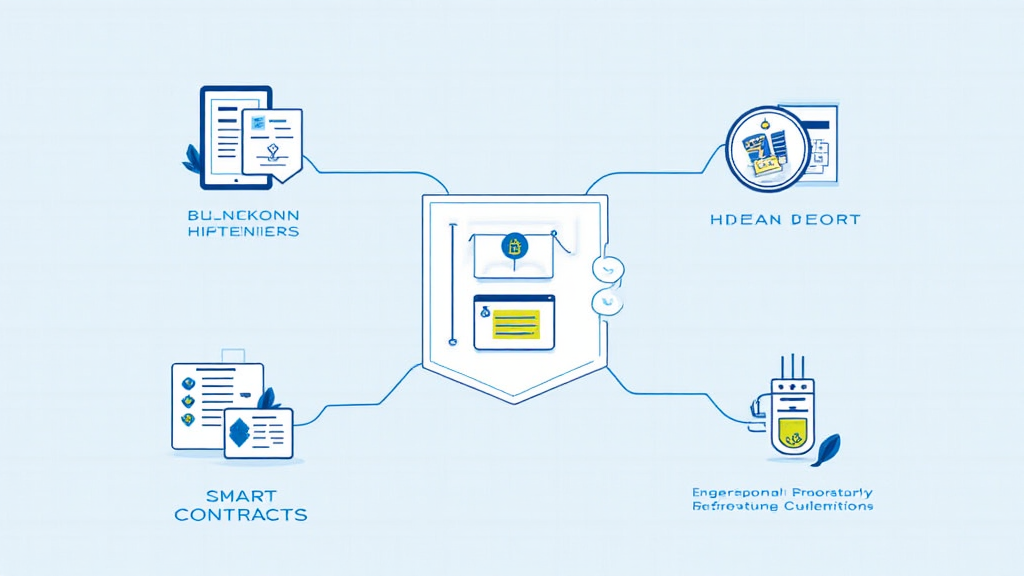2025 Blockchain Security Standards: A Comprehensive Guide for Digital Asset Protection
With an estimated $4.1 billion lost to DeFi hacks in 2024, the need for stringent security measures in the cryptocurrency sector has never been greater. As we enter 2025, there is a pressing demand for enhanced security audits, particularly in the vibrant Vietnamese market for blockchain and cryptocurrencies. This article will detail the essential standards for security audits, focusing on HIBT Vietnam security audit practices, to protect digital assets effectively.
The Importance of Blockchain Security Audits
In the evolving landscape of cryptocurrencies, security audits form the backbone of trust and reliability. Consider blockchain security audits like a bank vault for digital assets — it ensures that the assets remain secure from unauthorized access and vulnerabilities.
- Prevention of Hacks: In 2023, 79% of all crypto hacks were due to smart contract vulnerabilities.
- Regulatory Compliance: A rigorous audit process assists in adhering to global regulations, such as the tiêu chuẩn an ninh blockchain.
- Investor Confidence: Security audits increase investor confidence and trust in a project.
Understanding HIBT Vietnam Security Audit Standards
The HIBT (Ho Chi Minh Blockchain Institute) sets forth specific standards tailored to the Vietnamese market, where user growth is on the rise, projected to reach 23% annually from 2023 to 2025. The following key components represent the foundation of HIBT’s security audit practices:

- Smart Contract Verification: Every smart contract must undergo comprehensive testing to identify and mitigate potential vulnerabilities.
- Penetration Testing: Simulated attacks assess the resilience of the blockchain infrastructure.
- Regulatory Compliance Check: Audit processes must be aligned with the latest regulations issued by Vietnamese authorities.
Conducting a Security Audit: Step by Step
So how do you audit smart contracts effectively? Let’s break it down into actionable steps:
- Define the Scope: Outline the parameters and outcomes expected from the audit.
- Code Review: Examine the code line by line to catch any vulnerabilities early on.
- Testing: Implement unit tests and perform integration testing on smart contracts.
- Documentation: Maintain a detailed report of findings to guide future security measures.
- Remediation: Address all identified vulnerabilities and retest the solutions.
Challenges in Blockchain Security
Despite the advancements, several challenges persist in achieving robust blockchain security:
- Rapid Evolution: The cryptocurrency landscape is continuously evolving, creating a moving target for security measures.
- Human Error: Many security breaches arise from human mistakes in coding or implementing protocols.
- Insufficient Resources: Some projects, particularly startups, may lack the budget for comprehensive auditing.
Future Trends in Blockchain Security (2025 and Beyond)
In 2025, we expect to see several emerging trends in blockchain security:
- Increased Adoption of AI: Artificial Intelligence could play a critical role in identifying vulnerabilities faster.
- More Comprehensive Regulations: Expect stricter compliance and regulatory requirements from governments worldwide.
- Tools and Platforms: The rise of more robust auditing tools will aid projects in maintaining security standards effectively.
The Role of Community and Contributing Factors
Community engagement is crucial in enhancing the security landscape. Projects that involve community feedback in their audit processes often yield higher design integrity. Moreover, collaboration with experienced auditors is paramount to ensuring thorough evaluations.
How to Choose an Audit Provider?
When selecting an audit service, consider the following:
- Experience: Check the credentials and past audits of the firm.
- Reviews: Seek testimonials or case studies to gauge reliability.
- Tools Used: Ensure the provider utilizes industry-standard tools for audits.
Conclusion: Securing the Crypto Future
As we advance through 2025, the significance of structured security audits, like those offered by HIBT Vietnam, cannot be overstated. The roadmap to a secure cryptocurrency environment becomes clearer through education, community collaboration, and adherence to established auditing standards. Let’s stay vigilant and committed to securing our digital investments.
Keep in mind that while this article outlines essential practices in securing digital assets, it is not financial advice. It’s always best to consult local regulators for guidance.
By John Smithson
John Smithson is a renowned blockchain security expert with over 15 published papers in the field and has led audits for several well-known projects in the cryptocurrency landscape.



